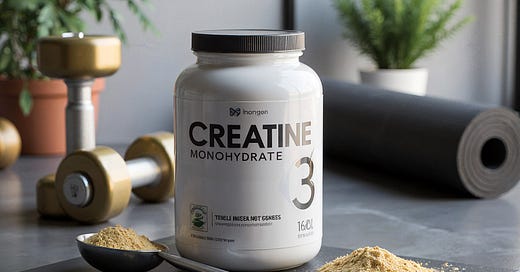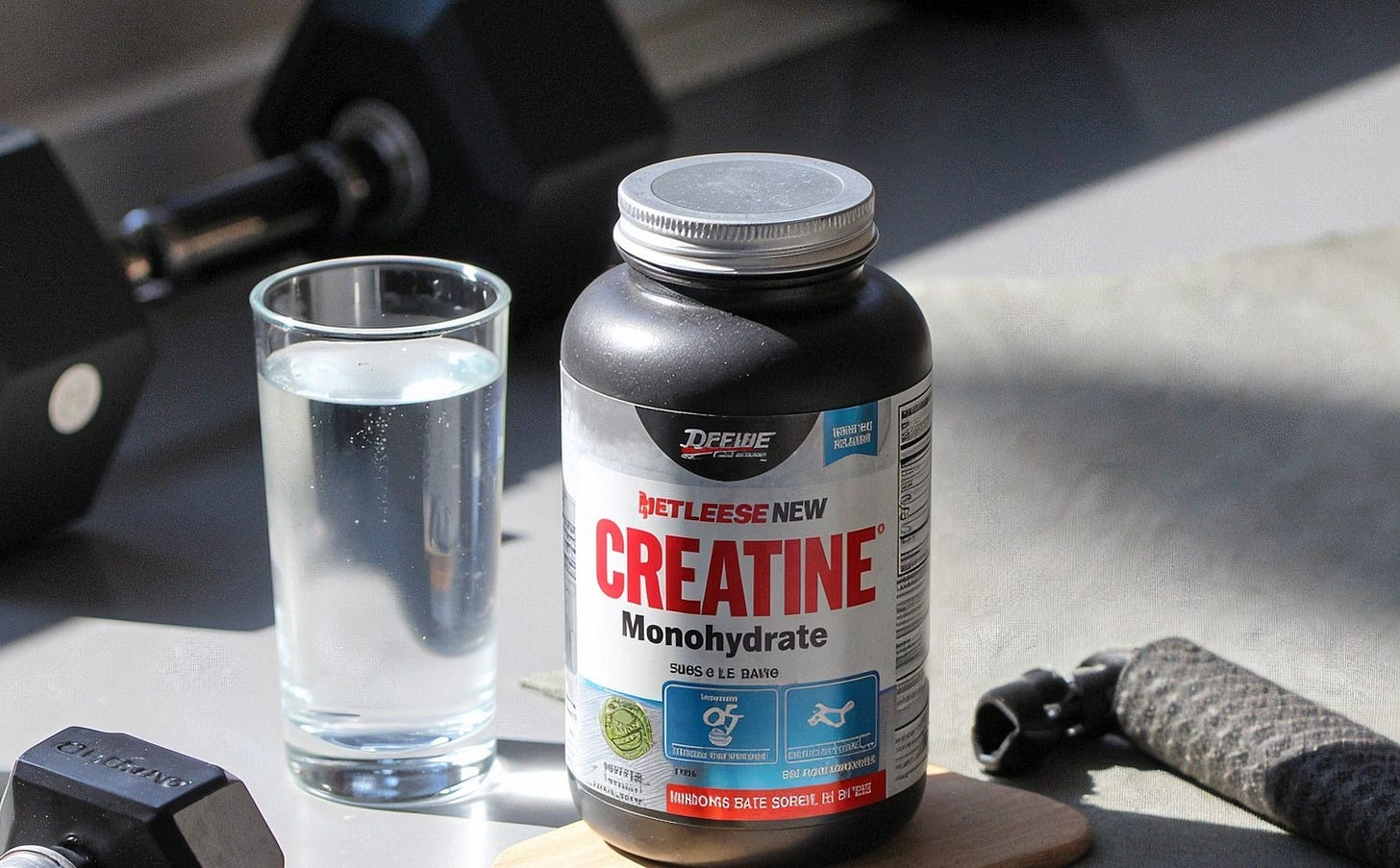By Geraldo Neto
Creatine is one of the most effective supplements for enhancing performance and recovery. When used correctly, it can help maximize your workouts and support long-term fitness goals.
Types of Creatine
The type of creatine you use matters.
Creatine Monohydrate: The gold standard—most researched, highly effective, and cost-efficient.
Other Forms: Variants like creatine ethyl ester or buffered creatine haven’t shown significant added benefits in studies. Stick to monohydrate for proven results.
How to Use Creatine
Here’s a straightforward approach to getting the most out of creatine.
1. Loading Phase
The loading phase helps saturate your muscles quickly:
Take 20 grams per day, divided into four 5-gram doses, for 5–7 days.
Follow this with a maintenance dose to keep your levels up.
2. Maintenance Phase
For ongoing use:
Take 3–5 grams daily, which is safe and effective for long-term results.
3. Skipping the Loading Phase
Not a fan of the loading phase? No problem.
Start with a daily dose of 3–5 grams instead.
This method gradually saturates muscles in about 3–4 weeks.
Timing: When Should You Take Creatine?
Timing can enhance creatine’s benefits.
Post-Workout: Research suggests taking creatine after exercise may improve muscle retention and performance compared to pre-workout consumption.
Combination Strategies
Boost creatine’s effectiveness by pairing it with the right nutrients.
Carbohydrates
Taking creatine with carbs, like juice or a carb-heavy meal, increases muscle uptake via insulin.
Especially optimal for maximal saturation during the loading period.
Protein
Combining creatine with protein shakes supports muscle recovery and hypertrophy, especially post-resistance training.
Consistency is Key
Taking creatine daily, alongside a structured workout plan, ensures optimal results. Consistency is more important than timing perfection.
Stay Hydrated
Creatine pulls water into muscle cells, which can lead to dehydration if fluid intake is low. Drink plenty of water daily to maintain hydration and support muscle function.
Conclusion
Creatine monohydrate is a safe, effective, and affordable supplement for improving performance and muscle adaptations. Whether you choose the loading phase or opt for a simpler daily dose, consistency, timing, and pairing it with carbs or protein can significantly boost its effectiveness.
References
Hall, M., & Trojian, T. (2013). Creatine Supplementation. Current Sports Medicine Reports, 12, 240–244.
Ribeiro, F., Longobardi, I., Perim, P., Duarte, B., Ferreira, P., Gualano, B., Roschel, H., & Saunders, B. (2021). Timing of Creatine Supplementation around Exercise: A Real Concern? Nutrients, 13.
Askow, A., Paulussen, K. J. M., McKenna, C. F., Salvador, A., Scaroni, S. E., Hamann, J. S., et al. (2022). Creatine Monohydrate Supplementation, but not Creatyl-L-Leucine, Increased Muscle Creatine Content in Healthy Young Adults: A Double-Blind Randomized Controlled Trial. International Journal of Sport Nutrition and Exercise Metabolism.
Olsen, S., Aagaard, P., Kadi, F., Tufekovic, G., Verney, J., Olesen, J., Suetta, C., & Kjær, M. (2006). Creatine supplementation augments the increase in satellite cell and myonuclei number in human skeletal muscle induced by strength training. The Journal of Physiology, 573.
Gualano, B., Painelli, V. S., Roschel, H., Lugaresi, R., Dórea, E., Artioli, G., et al. (2011). Creatine supplementation does not impair kidney function in type 2 diabetic patients: A randomized, double-blind, placebo-controlled clinical trial. European Journal of Applied Physiology, 111, 749–756.
Kreider, R., Pontes Ferreira, M., Wilson, M., Grindstaff, P., Plisk, S., Reinardy, J., et al. (1998). Effects of creatine supplementation on body composition, strength, and sprint performance. Medicine and Science in Sports and Exercise, 30(1), 73-82.
Greenhaff, P. (1997). The nutritional biochemistry of creatine. Journal of Nutritional Biochemistry, 8, 610–618.
Terjung, R., Clarkson, P., Eichner, E., Greenhaff, P., Hespel, P., Israel, R. G., et al. (2000). American College of Sports Medicine roundtable. The physiological and health effects of oral creatine supplementation. Medicine and Science in Sports and Exercise, 32(3), 706-717.







